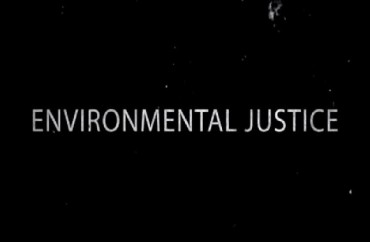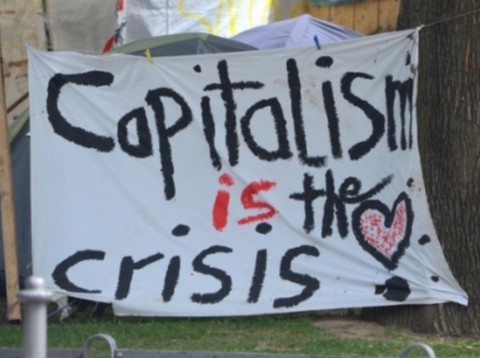
‘Environmental Justice’ programs studying ideology of climate change activism on the rise
When the Environmental Protection Agency proposed new global warming regulations last year, its leader claimed the measures were not just about saving the environment, but also “justice” for “communities of color.”
“Carbon pollution standards are an issue of justice,” said EPA Administrator Gina McCarthy in a teleconference call with environmental activists. “If we want to protect communities of color, we need to protect them from climate change.”
There is a growing movement, supported by academia, that suggests capitalism has effectively created a world in which poor and minority communities are in grave danger. The movement is called environmental justice. College students actually earn degrees in the field, and their research is used to support and advance Democratic and socialist policies.
This fall, the University of California-Riverside will begin offering a bachelor of science in sustainability and environmental justice.
Marguerite Waller, professor and chair of the department of gender and sexuality studies, said students will focus on the consequences of “unsustainable practices of extraction, industrialization, finance, corporate agriculture, air and water pollution, environmental degradation, and the forms of exploitation and denial of rights that accompany these.”
And an established “environmental justice” graduate degree program at the University of Michigan studies how global  warming and other policies allegedly harm poor and minority populations more than others, a field of study grounded in the belief that man-made climate change is fact, a campus official told The College Fix.
warming and other policies allegedly harm poor and minority populations more than others, a field of study grounded in the belief that man-made climate change is fact, a campus official told The College Fix.
For example, students look at how climate change supposedly impacts unhealthy eating habits and academic progress of school children. The program also studies how big business and “racist” policies have combined to create unhealthy living environments for poor and minorities, so-called “environmental racism.”
The program seeks to “develop a broad understanding of … factors that shape environmental justice movements around the world” and examines “the causes and consequences of inequitable distributions of environmental benefits and hazards.”
Students “study the mechanisms that give rise to class, gender, racial, and other kinds of disparities,” its website states.
Alexandra Haddad, spokesperson for the School of Natural Resources and Environment, which houses the master’s program, told The College Fix that the curriculum and professors work off the assumption that man-made climate change is fact, although the program doesn’t view science as “settled.”
“There is overwhelming evidence that climate change is man-made. We started with that hypothesis long ago,” Haddad said in an email, noting this approach as typical to science. “By now, we have amassed so much supporting evidence that we can take the hypothesis as fact.”
“That said, whether we are talking about climate change, air pollution, water pollution, or any other issue, we don’t think of science as ‘settled,’ ” she said. “We are always gleaning new information through our research, and our understanding is always evolving and deepening.”
The curriculum of climate change
Haddad said disadvantaged communities “bear disproportionately the burden” of environmental issues, such as childhood lead poisoning, healthy food accessibility and exposure to pollution, which therefore represent environmental inequality.
Some of the courses in the program are titled: “Race, Space, and Disparate Environmental Impacts,” “Health and Socioeconomic Development,” “Racial/Ethnic Health Disparities” and “Poverty and Inequality.”
One of the research projects by faculty and students examines data on Head Start children in Detroit “to understand if there are connections between environmental pollution and children’s academic progress.”
And a research program called the Environmental Justice Initiative, which is associated with the School of Natural Resources and Environment department and master’s degree program, argues that as a result of consumption, low-income minority communities are exposed to a “disproportionate amount of that waste” and resulting pollution.
University of Michigan Professor Dorceta Taylor, an environmental justice field of studies coordinator, published a book last year called Toxic Communities: Environmental Racism, Industrial Pollution, and Residential Mobility.
“From St. Louis to New Orleans, from Baltimore to Oklahoma City, there are poor and minority neighborhoods so beset by pollution that just living in them can be hazardous to your health,” its Amazon description states. “Due to entrenched segregation, zoning ordinances that privilege wealthier communities, or because businesses have found the ‘paths of least resistance,’ there are many hazardous waste and toxic facilities in these communities, leading residents to experience health and wellness problems on top of the race and class discrimination most already experience.”
Real life applications
In addition to the EPA’s stance, more recently President Barack Obama and the Department of Housing and Urban Development announced expanded regulations requiring suburban “integration” and “diversification.” Under the new rules, HUD plans to provide local governments “environmental health” data, among other things, to guide where public sector housing should be located.
In his book Power Grab: How Obama’s Green Policies Will Steal Your Freedom and Bankrupt America, Competitive Enterprise Institute fellow Christopher Horner criticizes the environmental justice movement as the newest fad of “wealth transfer” conjured up by “wealthy, western, white elites.”
“‘The environment’ has emerged as the next vehicle for wealth transfer and litigation demanding some form of ‘justice,’” he said. “‘Environmental justice’ is a quiet but steadily growing practice-area of environmental advocacy as the movement strives mightily to rebrand from being so obviously a movement of wealthy, western, white elites.”
“EJ is often counterintuitive; for example, the ‘climate’ agenda which requires dramatically increased energy costs thereby disproportionately harming the most vulnerable, represents ‘environmental justice,’” Horner writes. “The claim of EJ is also used to block development, generally in poorer areas. So while rhetorically appealing, in practice the wisdom of ‘EJ’ does not immediately present itself.”
The National Association of Scholars’ extensive 2015 study titled “Sustainability: Higher Education’s New Fundamentalism,” reports that student activism surrounding environmental justice generally focuses on fossil fuel divestment, noting many students have begun to demand “climate change reparations” based on alleged environmental-related injustices.
The report states that the sustainability movement on campuses uses climate change “consensus” in an authoritarian manner, enforcing a “prescribed orthodoxy” in faculty research and teaching.
Sustainability “displaces open inquiry into important subjects with a blatant appeal to authority, usually in the form of declaring that there is a ‘consensus’ among scientists that forecloses the need for further examination of what is precisely in question,” the report states.
“It orients faculty research and teaching into a prescribed orthodoxy. Not only are certain questions shut out, but certain answers are locked in. It turns higher education into a form of indoctrination.”
Like The College Fix on Facebook / Follow us on Twitter
IMAGE: YouTube screenshot (EPA)




Please join the conversation about our stories on Facebook, Twitter, Instagram, Reddit, MeWe, Rumble, Gab, Minds and Gettr.